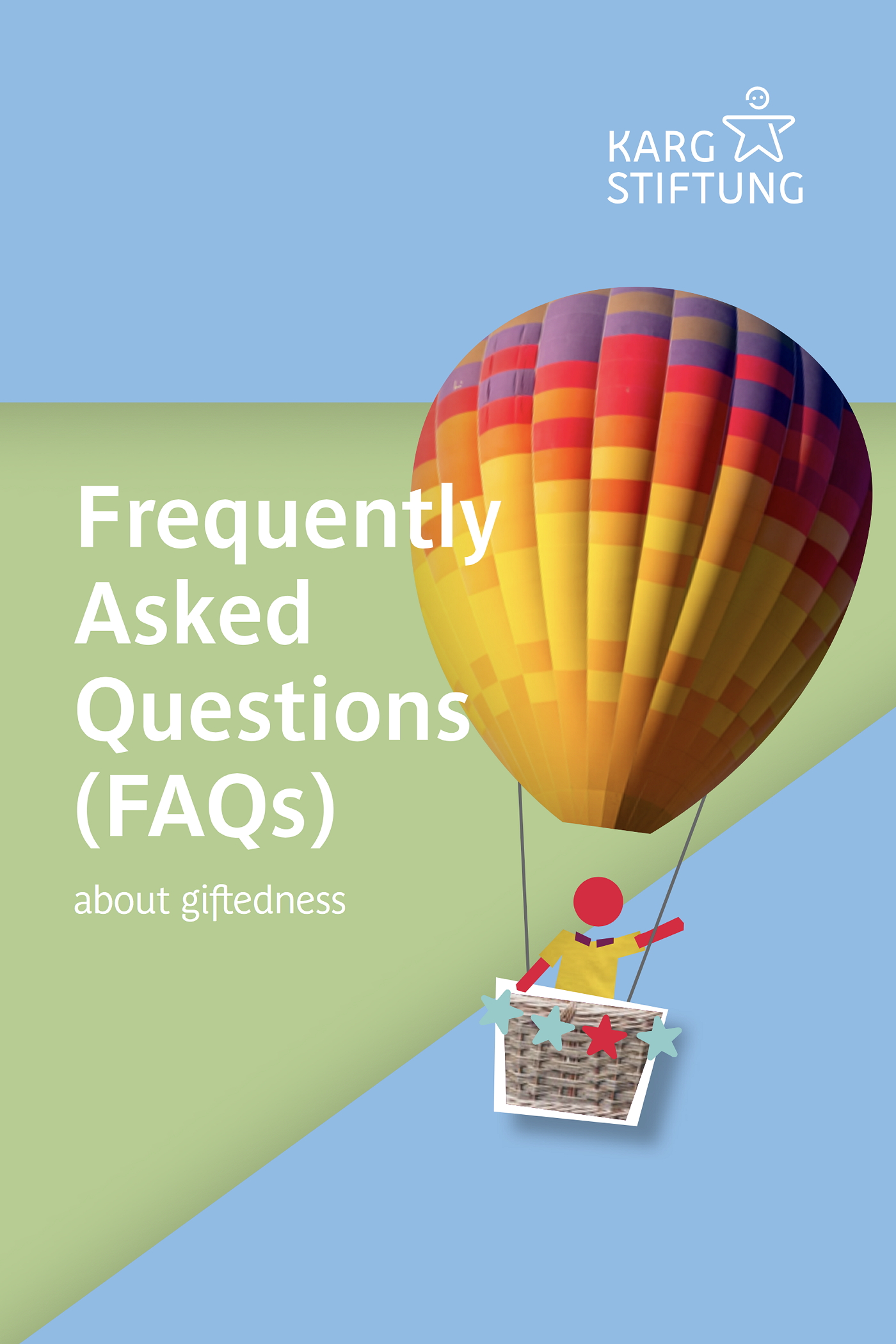Frequently Asked Questions (FAQs) about giftedness
What role does intelligence play?
Intelligence plays an important role in giftedness, especially in intellectual giftedness, but also in musical, artistic, or athletic giftedness. In general, the higher the intelligence, the better the performance-related development, because intelligence facilitates understanding, learning, and problem solving. Individual differences in intelligence account for achievement disparities in both education and employment quite well—explaining, for example, 25 to 50 percent of the differences in school performance among students. At the same time, however, education has been shown to have a positive impact on the intelligence development of learners. The environment also plays a role in determining how much a person can benefit from his or her intelligence. When all possibilities are available to individuals, they can make better use of their intelligence than when the external environment imposes rigid guidelines and restrictions. Finally, performance development does not depend exclusively on a person’s intelligence, because in addition to abilities, personality and certain acquired skills also play a role.
In other words, higher intelligence is a necessary but not sufficient condition for giftedness. Thus, defining giftedness in terms of intelligence (e.g., an IQ above 130) is considered outdated in many instances. There is also no natural threshold defining the point at which a person is gifted—just as there is no such threshold defining the height at which a person is exceptionally tall. Selecting a cutoff score, such as IQ 130, can be useful, for example, to compare groups of gifted and nongifted people in scientific research. Strict adherence to an IQ cutoff score for giftedness, however, makes sense neither in everyday life nor in giftedness programs, because one would hardly expect children with an IQ of 125 to perform differently than children with an IQ of 130 when they are essentially similar in all other respects.

